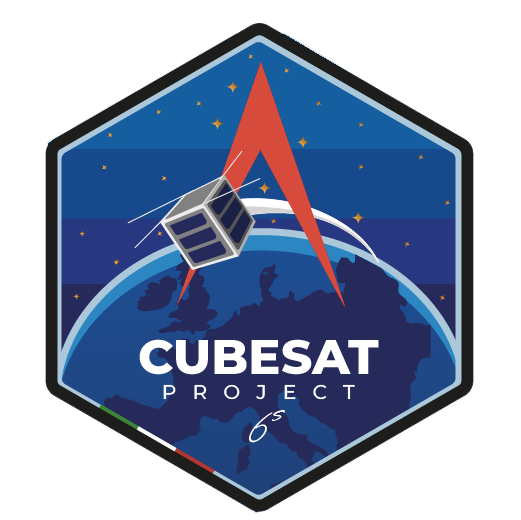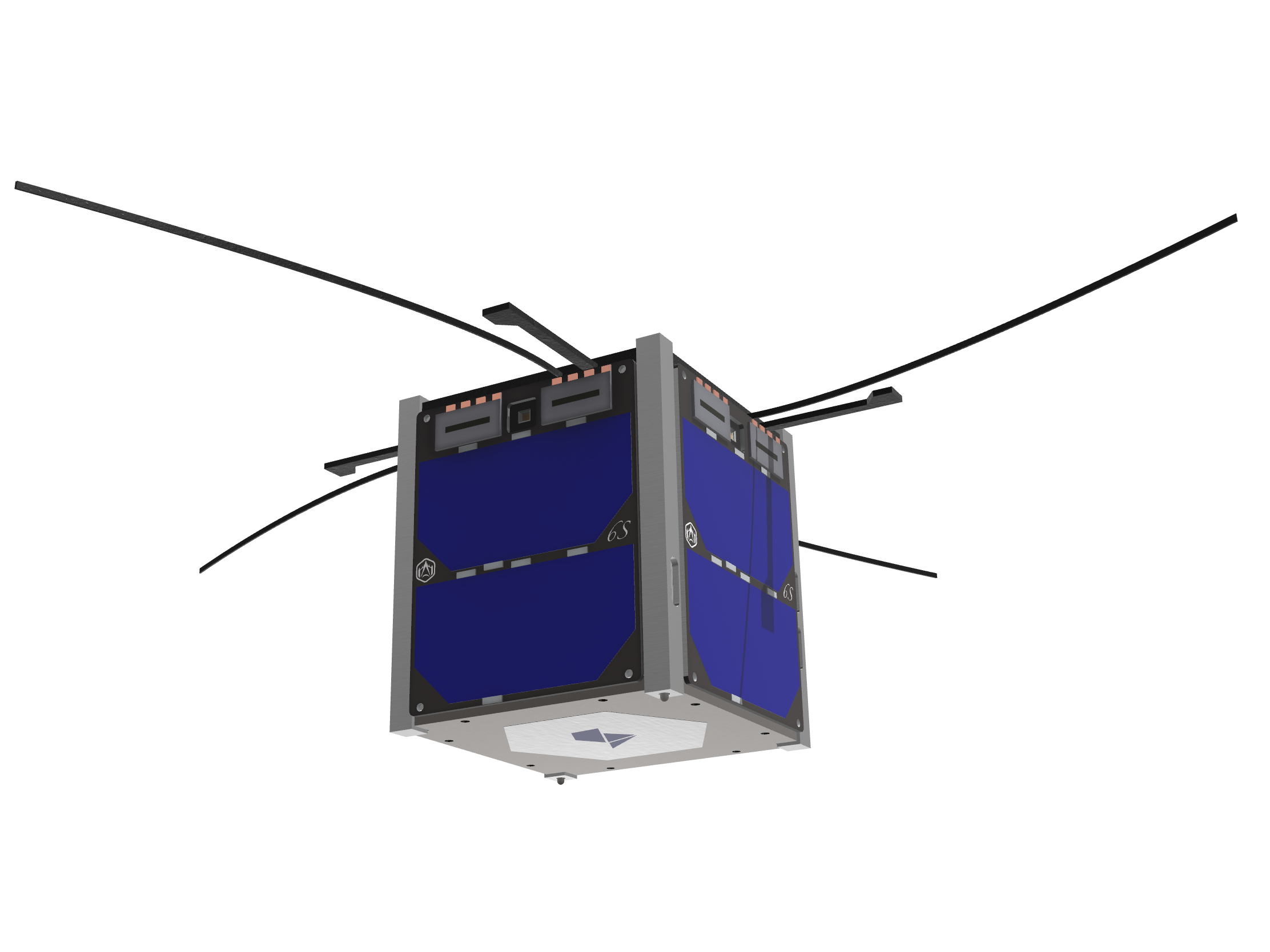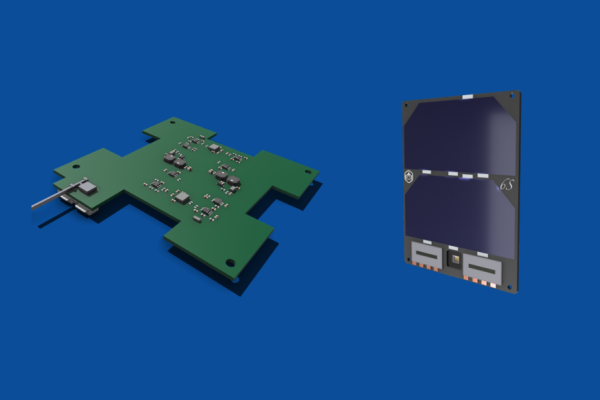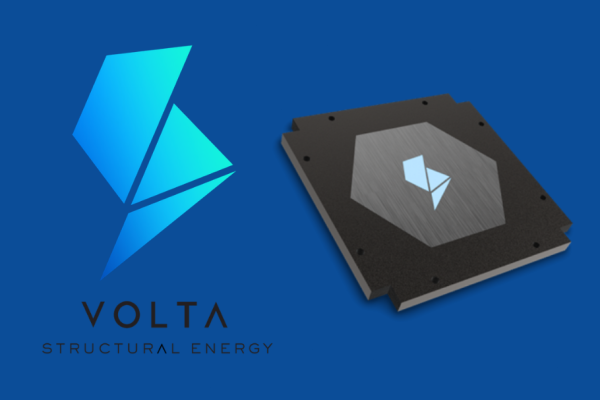
6S CubeSat Project
Student-made
Single unit
Satellite for
Solar cells and
Structural battery
in-Space testing
6S CubeSat
6S is a 1U CubeSat that will be the first satellite entirely designed and built by students of Politecnico di Milano.
Our goal is to provide an opportunity to get hands-on experience and apply knowledge about mission and subsystems design in practice. We are also creating network with external parties, as the team meets with interested companies, securing not only components or sponsorships, but also future jobs.

Mission
The phases of the mission are identified in order to satisfy the mission objectives. The Launch and Early Orbit Phase (LEOP) is followed by the Nominal Testing Phase, in which basic payloads functioning is assessed and performance data is downlinked. The Off-nominal Testing Phase follows, in which all the payloads and the overall platform are stressed further. Lastly, the satellite is passivated, and natural decay is exploited.
The primary objective is to conclude the Nominal Testing Phase tests successfully for both payloads. For the Perovskite solar cells, this details into a successful characterization in space, starting from the acquisition of their characteristics (open circuit voltage, short-circuit current, IV curve) and analysing their behaviour with respect to radiations, different inclinations and temperature, and the effect of the harsh space environment on their degradation.
While for the structural battery, the structural behaviour of the multi-layer panel developed by Volta Structural Energy will be characterized. Additionally, monitoring of the structural battery will take place by employing thermocouples, pressure sensors and strain gauges.
Following the Nominal Testing Phase is the Off-nominal Testing Phase, in which all the payloads and the overall platform are stressed and tested. Lastly, the satellite is passivated, and natural decay is exploited.
Partners
Operating at Politecnico di Milano, the most valuable partner of 6S CubeSat is the University itself. PoliMi provides the team with needed expertise, facilities and resources and the team members are in constant contact with PoliMi professors who advise the students through their knowledge and experience.
Moreover, taking into account the company-like structure of PoliSpace, partnerships for 6S CubeSat are established via the Business&Finance department. It is responsible for research, contact and maintaining relationships with various companies and institutions.
The current partners of 6S CubeSat, among others, are: Politecnico di Milano, Payload providers (Cambridge University&Potsdam Research Group, Volta Structural Energy), Software companies (Altair, Esatan, Ansys), D-orbit, Leafspace, Sidereus.
6S Payloads

PESCA
Perovskite cells are a class of solar panels, currently under research, that have emerged as a very promising candidate for improving the efficiency of solar power gathering while being relatively inexpensive to produce, very lightweight and resistant to radiation. Their main weaknesses on earth are their sensibility to humidity and oxygen, which degrade their performance, clearly absent in Space. Moreover, it’s been theorized that some kinds of Perovskites might have the capacity to self-heal from radiation damage.
These properties make them attractive for space applications. Eight cells samples of different Perovskites will be supplied by the University of Cambridge and Potsdam research group and will be flown for the first time in space, on a long therm mission.
PESCA (PErovskite Solar Cells Analyzer) is the testing circuit for the solar cells that was designed by the EPS&PL team with the advice of several PoliMi’s professors. The main goals are to measure the cells’ behaviour and degradation in the space environment and to characterize the cells in space.
In more detail, the areas of interest include the behaviour of the cells with respect to radiation, various sunlight inclinations and temperatures, eventually leading to the analysis of their degradation in the harsh environment. As for the characterization, the acquisition of the open circuit voltage, short-circuit current, and IV curve is targeted.

Volta Structural
Structural batteries represent a novel approach for integrating the energy storage within structural parts of a manufact.
This leads to volume reduction, which is at a premium in space applications. As they are just emerging from the prototype phase, many variables require testing to ensure the readiness of this technology for space missions. The battery is provided by Volta Structural Energy, an Innovative Start-Up created by former PoliMi students, and will be analysed in its thermal and structural behaviour in space.
All test data will be centrally collected on a daughterboard attached to the onboard computer. These PCBs were designed to fit the needs of the mission, saving space compared to out-of-the-box solutions and optimising the utilisation of all available inputs and outputs of the OBC.
Timeline
Latest News
6S Team Flies to IAC Paris 2022
Four papers were presented by the 6S CubeSat team at the 73rd International Astronautical Congress 2022 in Paris, which took place from 18-22 September.
- “Strategy for the cost-effective in-orbit characterization of a set of different Perovskite Solar Cells”
- “Preliminary study about the implementation of a structural battery on a 1U cubesat”
- “Lynk, a mobile application for democratization of space exploration”
- “Development of an innovative UHF-band Antenna for 6S PoliSpace CubeSat 1U”
Completion of Phase A
The 6S Team has successfully completed Phase A and initiated the progression to Phase B!
IAC Abstract Acceptance
The team has submitted numerous abstracts for the 73rd International Astronautical Congress, which were accepted for an oral presentation in Paris in September 2022!
6S Team Flies to Barcelona
Two Posters were presented during the 4th Symposium on Space Educational Activities in Barcelona on April 2022
- “Effective Student team infrastructure towards CubeSat mission design in pandemic times.”
- “A student-made approach for CubeSat design: the 6S roadmap.”
PoliMi to Fund 6S
Politecnico di Milano decided to award us the funding for the following components:
- Solar Cells
- Onboard computers
- ADCS Sensors and Actuators
- Antenna
- EPS Subsystem
- Structural Components

